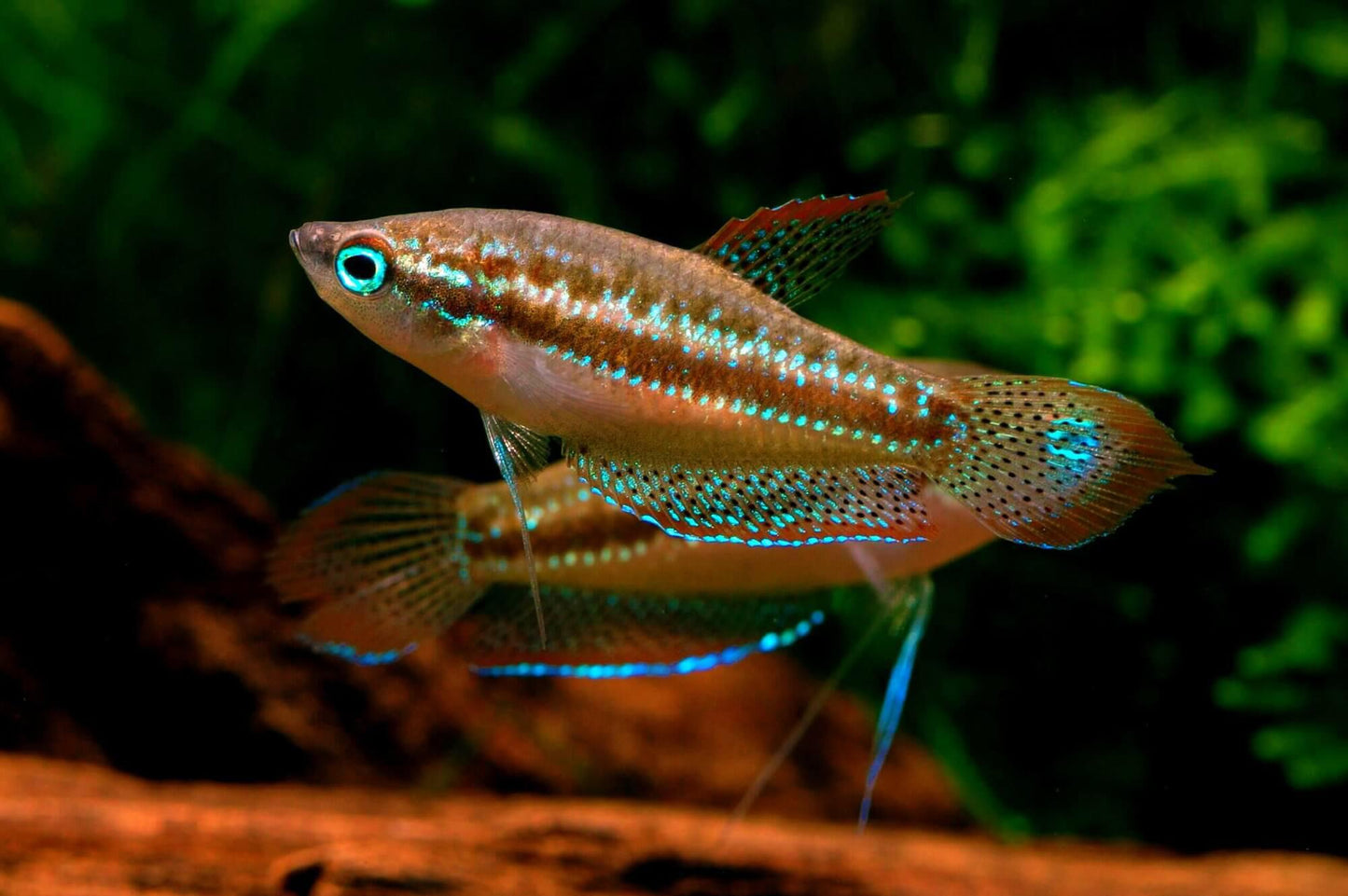1
/
of
1
Top Fin Aquatics
Croaking Gourami
Croaking Gourami
Regular price
$14.99
Regular price
Sale price
$14.99
Unit price
/
per
Tax included.
Shipping calculated at checkout.
Couldn't load pickup availability
Croaking Gourami Care Guide
Croaking Gouramis (Trichopsis vittata) are a charming and unique species known for their peaceful nature and distinct croaking sound. They thrive in a well-maintained, planted aquarium and make a fascinating addition to a community tank.
Overview
- Scientific Name: Trichopsis vittata
- Common Name: Croaking Gourami
- Family: Osphronemidae
- Origin: Southeast Asia
- Adult Length: 5 cm
- Lifespan: 3–5 years
Tank Setup
- Minimum Tank Size: 40 liters (10 gallons) for a small group.
- Aquascaping: Provide plenty of hiding spots using live plants, driftwood, and caves. They appreciate areas with cover to feel secure.
- Lighting: Subdued lighting is ideal to replicate their natural habitat and reduce stress.
Water Parameters
- pH Range: 6.0–7.0 (slightly acidic to neutral).
- Temperature: 24–28°C (75–82°F).
- Hardness: Prefer soft to moderately hard water.
Filtration and Water Flow
- Use a filter with a gentle flow to accommodate their preference for calm waters. Excessive water movement can cause stress.
Diet
Croaking Gouramis are omnivores and thrive on a varied diet:
- Staples: High-quality flakes or small pellet food.
- Supplements: Offer live or frozen foods such as brine shrimp, daphnia, and small insects to provide essential nutrients and enhance their natural coloration.
Tank Mates
- Compatibility: Peaceful species that do well in pairs or small groups.
-
Recommended Tank Mates:
- Small, non-aggressive species like rasboras and tetras.
- Non-aggressive bottom dwellers like Corydoras or small loaches.
- Avoid: Aggressive or fin-nipping species that may stress or harm them.
Behavior and Compatibility
- Unique Trait: Known for their croaking sound, which they produce by grinding their pharyngeal teeth—most often heard during courtship or disputes.
- Temperament: Generally peaceful but may display mild territorial behavior, especially during breeding.
- Care Notes: Keep them in a stress-free environment by avoiding aggressive tank mates and maintaining optimal water conditions.
Share


